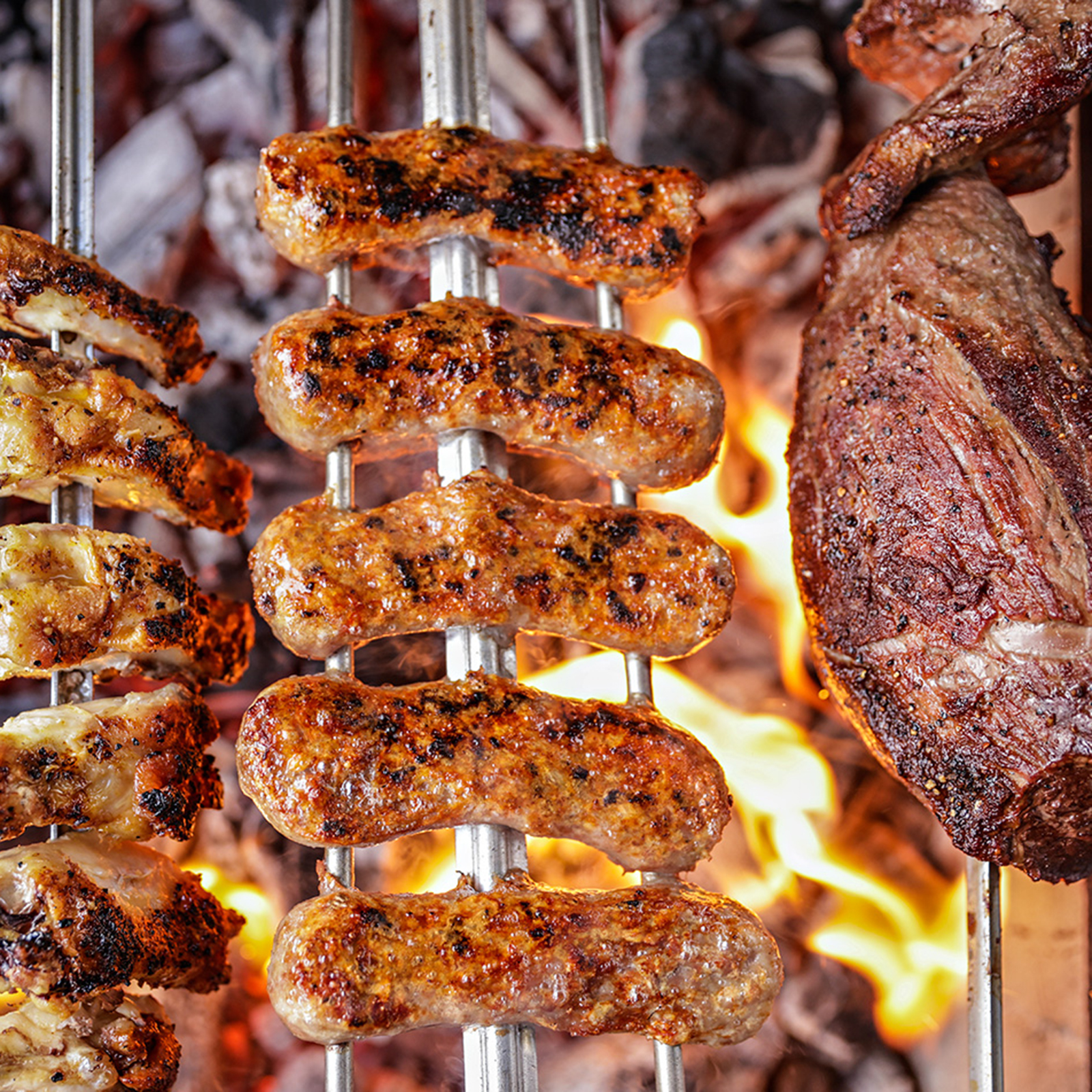
Maybe 25 years before a scruffy ex-hunting guide drinking at a Colorado brewery walked up to buy a bite to eat from her hand-built food truck, Barbara (Rondello) Veverka was a precocious little girl on a beach, crawling in the sand while her parents sold pastel and other popular street food from a tent near their home on the Brazilian coast.
And maybe 20 years before he walked up to the hard-working brunette cooking, serving and taking orders at the Brasa King Grill, Jack Veverka was a teenager sitting in front of a TV in his childhood home, scrambling to memorize the recipes the sweaty chefs were breathlessly spitting out in order to cobble together dinner for his two younger siblings and their dad.
So it was that Barbara and Jack’s paths crossed in Arvada, Colorado, in 2017.
“He fell in love with my wings, you know,” Barbara jokes. “It was all about the food.”
Just four years later the pair are not only now husband and wife, they’ve also arrived in the Flathead Valley with a wait-say-that-again idea — a gently Americanized Brazilian steakhouse food truck that doubles as the rolling kitchen for a thriving catering business — that has quickly caught on in an area not exactly renowned for its culinary curiosity.
Copacabana Grill, as the business is now known, serves a cuisine unparalleled in Northwest Montana, with everything from chicken hearts to farofa to, well, cole slaw, and is coming off its best year yet in 2021.
“People are dying to eat good food. They are,” Barbara says. “When you actually present something awesome, it’s like ‘holy cow, this is great!’”
“The bottom line is, you serve good food, I don’t think people are going to care where it’s from, what kind of cuisine it is. It’s like, ‘here’s the best cut steak you can possibly have, cooked the right way.’ They’re going to like it.”
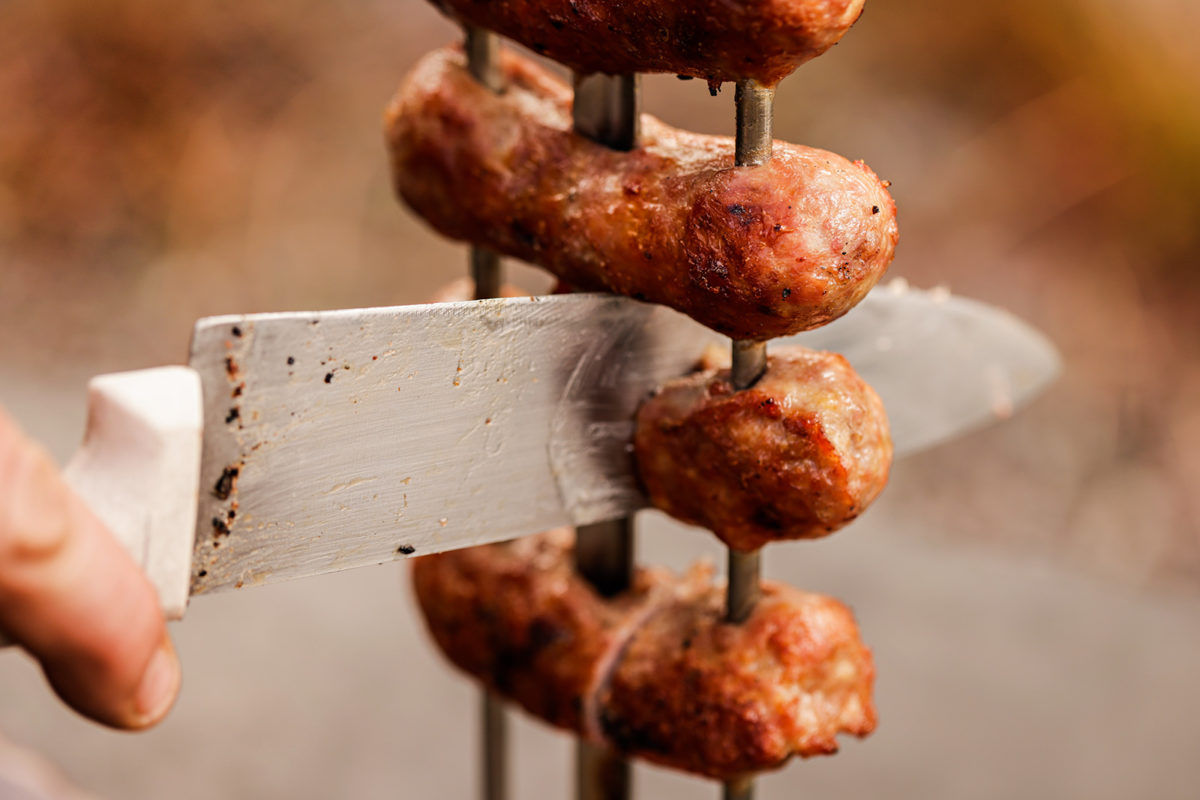
Nadia and Marcos Rondello raised their only daughter, Barbara, in Mongagua, Brazil, a crowded beachside town 45 minutes or so away from Sao Paolo, where they eventually upgraded from their tent to a more permanent location down the street from their modest home. Once a week, a fresh market outside the restaurant crowded the street.
It was a very working class operation: food made for the masses, without pretension and at prices manageable for the residents of a city the Veverkas only half-jokingly called “third-world.” The food, though, was dynamite.
“It’s one of the things I admire about (Mongagua),” Jack said. “You go there and you don’t have to dress up, you just walk down the streets in shorts and a shirt and eat some of the best food there is in the whole country on the side of the street.”
Barbara said her mom, Nadia, was the cook in the family while Marcos had the “operational” expertise, building, cleaning, repairing and organizing the business. It’s been a few years since they turned the restaurant over to another operator (the Rondellos still own it) but the departure from food-service in Brazil has only left them more time to help their daughter’s project get off the ground and stay afloat.
“I don’t think it would be possible,” Barbara said of her parents’ role in Copacabana Grill. “I don’t think we would be as full-force as we are without them.”
Barbara worked in her parents’ restaurant growing up before taking up teaching in Brazil and, eventually, deciding she wanted to strike out on her own. So in 2007, with an eye on honing her English and experiencing a new and exciting culture, she landed a job as an au pair in the most exotic of American locales: Cincinnati, Ohio.
Eventually, though, her passion for cooking rekindled and the entrepreneurial spirit she inherited from her parents won out.
“I want to do something I like. I don’t want to have a boss,” she said. “I want to do it on my own and it was always about food. There was no way around it. I couldn’t think of anything else that I liked or had more experience (doing).”
What Barbara didn’t have at the time was a business, or much in the way of seed money to get a business off the ground. So she turned to her dad, Marcos, and his “operational” prowess. The pair managed to buy an old bread truck for about $10,000 and began the process of converting it into a rolling kitchen.
When they were done, partly on a lark, Barbara decided to list it for sale. It sold for $27,000 in two days.
So they flipped six more trucks.
“Then after that it was like, ‘OK, that’s enough. Let’s cook now.’”
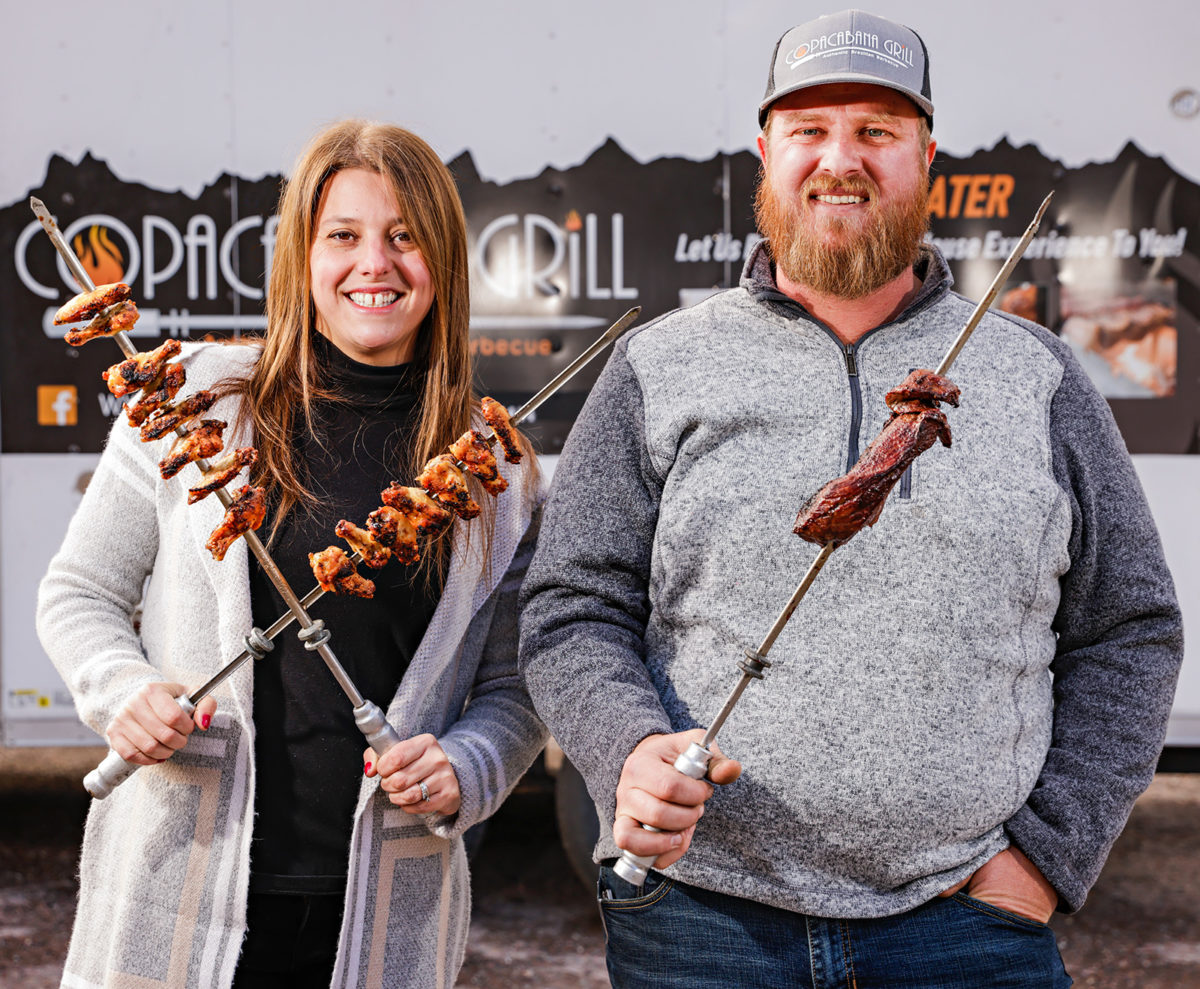
Jack Veverka grew up in the small town of Alturas, California, the state’s northeastern outpost. He was raised on a ranch with his dad and two younger siblings after his parents divorced, and seeking to find a way to help out he did what most teenagers of a certain age did: he watched television. Specifically the Food Network.
“I’d literally call my dad and be like, ‘hey, bring these ingredients home’ and one out of 10 were good,” Jack said. “(The chefs) were always really good about telling you the recipe but they didn’t show it to you, so finally my dad got me a notepad and I could write everything down because I’d miss a bunch of ingredients. It would turn into this crap dish because I missed a bunch of things.”
Over the years, of course, Jack got better. He used all the right ingredients, started to experiment on his own, and became a self-taught chef with a hard-to-explain knack for getting those ingredients just right.
“For some reason, food, it just spoke to me and it was easy,” he said.
“He has a gift, that’s for sure,” Barbara interrupts. “He can put things together and make a fabulous dish that you wouldn’t think is going to taste awesome and it does, every time.”
Jack left home at 16 and got his start in the professional food business working with a friend who had been cooking during his time in the U.S. Navy. When that friend told him he had a catering gig but needed a menu, Jack came to the rescue.
They spent three or four years working together, Jack says, before he ventured to Colorado to help run the epoxy flooring business owned by a man he took on guide trips back in California.
Then one day at the brewery he stopped by Barbara’s truck.
“One night she couldn’t get help so I helped her cook on the truck,” Jack said. “Then once I got a little braver, I was like, maybe we should change this, maybe we should change that?”
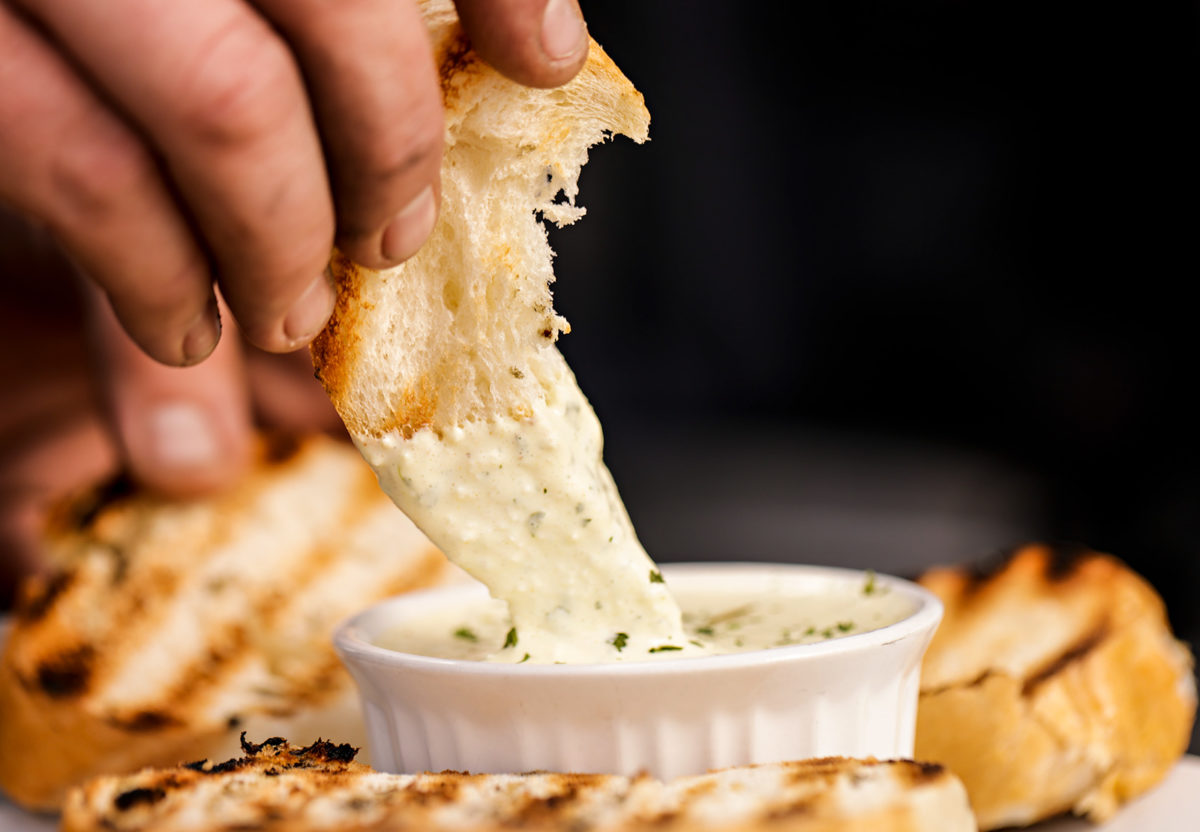
The Veverkas moved to Kalispell mostly at Jack’s behest — he’s an avid outdoorsman, she’s a “small town girl” who would still prefer a little more sun — and quickly worked out their new concept, Copacabana Grill.
The menu is a “merge,” as Barbara describes it, of her Brazilian cooking and his homemade flair, although the menus for both the catering business and the food truck are ever-evolving. Still, the formula remains mostly the same: quality sourcing and a simple preparation.
“On our truck, it’s going to be good meat and salt,” Jack said. “That’s all you need and then you try to pair it with stuff that accompanies that.”
The experience customers get is an unwritten part of the menu, too. The Gaucho-style presentation of huge portions of meat on a giant metal skewer, delivered and sliced in front of the customer at the table, is a regular part of the pair’s catering gigs and even at the food truck, where customers can watch their meal being prepared.
“It’s visually interesting because we cook outside the truck so everybody sees what’s happening the entire time,” Barbara said. “The whole process is in front of them … It’s all prepared right there and the smoke just goes everywhere. So no matter where we are, even if people are not hungry, they will come back because that smell just goes places.”
The Veverkas say business has been good in the Flathead, especially in 2021 when they say they hit their highest numbers, albeit while working extreme hours and dealing with the employee shortage that has impacted countless businesses in the valley. The last year involved an extra level of support from Barbara’s parents, who now regularly spend their “vacations” in the states working on the truck.
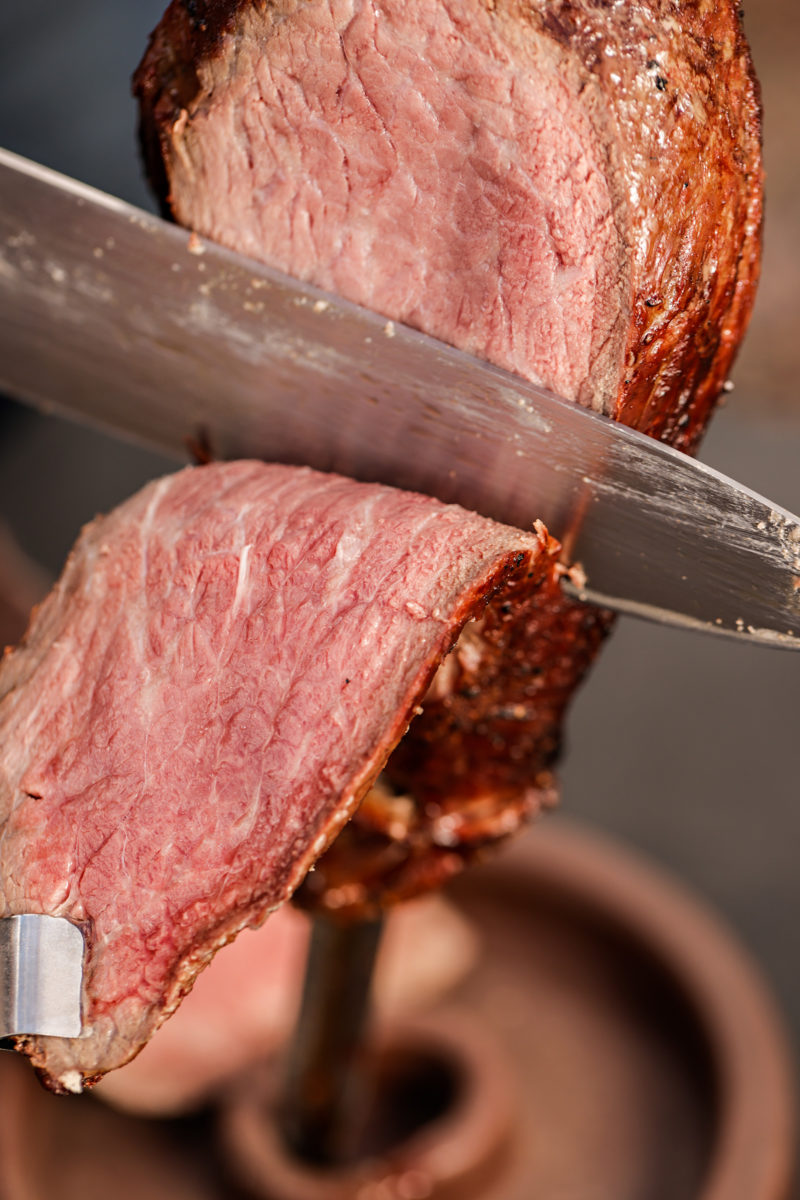
And Jack and Barbara have made it a mission to grow the Flathead’s larger culinary scene as well, particularly among fellow food trucks. Their unofficial goal, Jack said, is to drive the fast-food companies out of town, and in an effort to support mom-and-pop operations they’ve created and hosted the Flathead Food Truck Festival each of the last two summers.
“All the food trucks in Kalispell, they help each other,” Jack said. “I think that even as the valley grows and we get more food trucks and more restaurants and stuff like that, we’re still going to have this one tight-knit group of 20 trucks or 25 trucks who are always going to help each other and stick up for each other and promote each other.”
As for the future, the Veverkas are now parents as well as business owners, and Jack works driving a bulldozer during wildfire season to help support the family financially. Barbara would love to open a second truck, too, but the staffing realities make that unlikely, at least in the near term.
So instead they remain focused on their truck, on their catering business, and on what they do best: honoring their own unique roots and keeping their customers happy.
“We’re more than just frying french fries. It’s beyond that for us,” Barbara said. “We want people to feel good. We’re not the cheapest food truck out there. We’re not the cheapest caterer out there.”
“It’s more than just a job … We love what we do,” she continued. “We love cooking and we love serving people, it makes us happy and we try to stay faithful to that.”